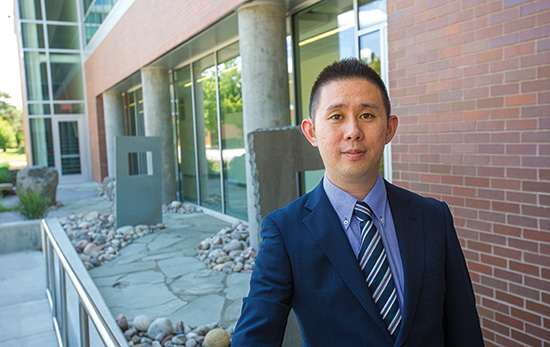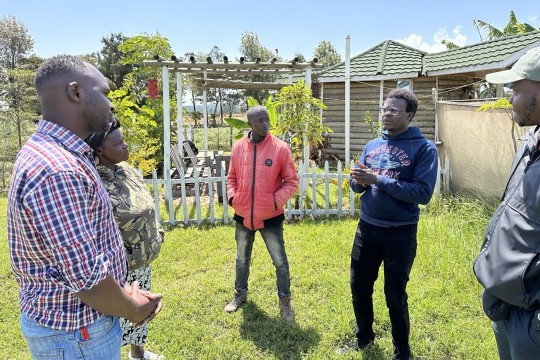RIT/NTID grad helps improve lives around the world
A. Sue Weisler
Minoru Yoshida ’04, ’08 credits RIT/NTID with giving him the experience to land a job as a grant officer with The Nippon Foundation of Japan.
A curiosity about a college campus more than 6,600 miles from his home nearly 20 years ago has led Minoru Yoshida to improve the lives of deaf, hard-of-hearing and hearing individuals around the world, overseeing millions of dollars in projects each year as a grant officer with The Nippon Foundation of Japan.
Yoshida ’04, ’08 (information technology; science, technology and public policy) was born in Kyoto, Japan. He became deaf when he was a year old due to a high fever and was mainstreamed most of his life. A family acquaintance had mentioned the National Technical Institute for the Deaf being on the primarily hearing campus of RIT.
“I was fascinated with the environment which RIT/NTID offered,” Yoshida said. “It provided a great welcoming and sense of community for the students who were deaf and hard of hearing with a great mass of students who were like me, from a very similar academic background.”
Yoshida studied at a community college in Illinois for six months to improve his English and American Sign Language skills, then enrolled at RIT/NTID.
His major in information technology led to a part-time and later full-time job at the NTID-based Postsecondary Education Network-International. PEN-International was a multinational partnership of colleges created in 2001 by more than $15 million in grants from The Nippon Foundation to improve and expand college education for deaf and hard-of-hearing students around the world by sharing educational technology and conducting faculty development and training.
“This provided me an opportunity to work with various people not only at NTID, but with deaf educators and deaf leaders around the world,” Yoshida said. “This work influenced my path to become more involved in the public/nonprofit sector as I witnessed injustice still remaining.”
Yoshida landed a job full time with The Nippon Foundation in Tokyo after getting his master’s degree. He screens applications for grants, primarily for international disability projects as well as deafness-related projects in Japan. He manages ongoing relationships with grantees to help them enhance the effectiveness of their projects. When projects are completed, he reports on the impact of their programs and evaluates whether the outcomes were accomplished.
“My academic and working experience at RIT/NTID helped me in this job,” Yoshida said. “It provided me self-confidence and cultural identity as a deaf person. And without interactions with my fellow students and professional colleagues during my college years, I would not have been able to come this far in my career path.”
The foundation’s mission is social innovation; its grants are intended to promote positive changes by providing assistance for humanitarian work, including social welfare, public health and education. There are still many issues that remain unsolved in terms of education for deaf and hard-of-hearing students, Yoshida said. “Deaf issues are generally very complex and not correctly understood.”
While his work has taken him around the world, he has fond memories of Rochester, which he considers his second home. “Being at RIT/NTID was a precious moment in my life as I was able to meet my role models and friends who are like me. I no longer had to be the oddball in a mainstream setting.”














